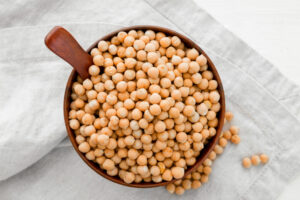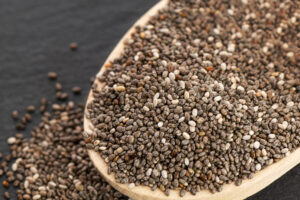Trending
Introduction
Lentils are a type of legume that come in various colors and sizes, including green, brown, red, and black. Each variety has its own unique flavor and texture, making lentils a versatile ingredient in many dishes. Historically, lentils have been a significant food source in many cultures, providing essential nutrients and sustenance

Nutritional Value of Lentils
Lentils are highly nutritious, offering a wealth of macronutrients and micronutrients. A typical serving of cooked lentils (about one cup) contains approximately:
- Calories: 230
- Protein: 18 grams
- Carbohydrates: 40 grams
- Fiber: 16 grams
- Fat: 1 gram
In addition to these macronutrients, lentils are rich in vitamins and minerals such as folate, iron, manganese, and phosphorus.
Protein Content in Lentils
Lentils are renowned for their high protein content, making them an excellent plant-based protein source. With about 18 grams of protein per cooked cup, lentils provide a substantial amount of the daily recommended intake, particularly important for vegetarians and vegans. Compared to other legumes, lentils are relatively high in protein, which contributes to muscle maintenance and repair.
Health Benefits Lentils
Heart Health
One of the standout benefits of lentils is their positive impact on cardiovascular health. Lentils are high in dietary fiber, which helps reduce cholesterol levels and promotes a healthy heart. The potassium and magnesium content in lentils also support heart health by regulating blood pressure.
Digestive
The high fiber content in lentils not only aids in digestion but also helps prevent constipation and other digestive issues. Lentils provide both soluble and insoluble fiber, which work together to maintain a healthy digestive
Weight Management
Lentils are an excellent food for weight management due to their high fiber and protein content, which promote feelings of fullness and satiety. They are also low in calories, making them a nutritious choice for those looking to lose or maintain weight.
Blood Sugar Control
Lentils have a low glycemic index, meaning they release energy slowly and help regulate blood sugar levels. This makes them an ideal food for individuals with diabetes or those looking to manage their blood sugar levels.
Nutrients in Lentils
Lentils are packed with essential vitamins and minerals, including:
- Folate: Important for DNA synthesis and repair.
- Iron: Crucial for oxygen transport in the blood.
- Manganese: Plays a role in bone formation and nutrient metabolism.
- Phosphorus: Essential for the formation of bones and teeth.
Antioxidant Properties of Lentils
Lentils contain a variety of antioxidants, which help reduce oxidative stress and inflammation in the body. These properties are beneficial in preventing chronic diseases and promoting overall health.
Side Effects of Lentils
While lentils are highly nutritious, some people may experience side effects such as gas and bloating due to their high fiber content. Additionally, lentils contain antinutrients like phytic acid, which can interfere with the absorption of certain minerals.
How to Minimize Side Effects
To minimize potential side effects, it is recommended to soak lentils before cooking and to start with small portions if you are not accustomed to high-fiber foods. Proper cooking methods, such as thorough boiling, can also help reduce the impact of antinutrients.
Lentil Recipes from Around the World
Lentils are used in many traditional dishes globally. Some popular recipes include:
- Indian Dal: A flavorful lentil curry.
- French Lentil Salad: A light and nutritious dish.
- Lentil Soup: A hearty and warming meal.
FAQs
What are the health benefits lentils?
Lentils offer numerous health benefits, including improved heart health, better digestion, weight management, and blood sugar control. They are also rich in essential vitamins and minerals.
How much protein do lentils contain?
A cup of cooked lentils contains about 18 grams of protein, making them an excellent source of plant-based protein.
Can lentils cause digestive issues?
Some people may experience gas and bloating due to the high fiber content in lentils. Proper soaking and cooking can help reduce these side effects.
Are lentils good for weight loss?
Yes, lentils are low in calories and high in fiber and protein, which can help promote feelings of fullness and aid in weight loss.
How can I incorporate lentils into my diet?
Lentils can be used in a variety of dishes, including soups, stews, salads, and curries. They can also be used as a meat substitute in many recipes.
What are the nutritional benefits of lentils?
Lentils are rich in protein, fiber, vitamins (especially folate), and minerals (including iron and manganese). They also contain antioxidants that help reduce inflammation




